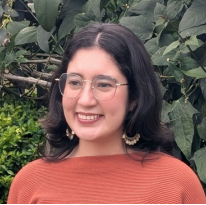Author
Sara Pineda is the Communications Coordinator for ASJ-US based in Tegucigalpa. She was born and raised in Honduras, and she believes that sharing the stories of her people is crucial to the pursuit of justice in her country.
February 25, 2025
As I sit in my parent’s empty living room, I remember when there used to be three families living together in this small house. Now it feels empty, just like the rest of the village. All my best friends left. My favorite cousin left. Displacement has pierced through my community. There is not one lone reason that made all these people leave; it’s not a one-size-fits-all type of situation. Instead, it’s a compendium of the conditions they’ve been living in, the relationships they have both within and outside the country, and how they perceive their current and future life opportunities.
My best friend Lila* left Honduras because she felt like it was her last option. She had endured incredibly traumatic experiences since childhood. Her uncle was killed by a gang. Her father fled in fear. Her family supported her brother’s education but not hers. She worked full-time to fund her own education. She was mugged on the bus several times going from work to her college. They took her computer, phone, wallet, and even the rings and earrings she was wearing. Every time this happened, she had to start over while still feeling traumatized and shocked. Then, after having worked hard to find a job, she was fired from her position because they wanted to hire someone affiliated with the political party that was in power at that time. She felt like every time she was close to achieving her goals, the finish line got moved and placed further away.
My cousin Luis and his brothers also left. Their whole life, they had worked on the coffee farms, but they were having trouble affording the basic necessities like food, medicine, and appropriate housing. When I asked them why they chose to leave, they had similar answers. They felt as if they were barely getting by. They wanted to build houses of their own instead of having three families in one small house. They wanted to also offer their kids a more secure future. They did not want to simply survive anymore. They knew migrating to a different country would not make them wealthy, but they wanted to be stable enough to think about the future. They wanted enough stability to allow their children to have dreams and believe that they could achieve those dreams.
Remittances, which is money Hondurans in the US send back to support loved ones, are sustaining a huge part of the economy in my village now. In fact, in the whole country remittances make up 26% of the Honduran economy. There are over 1.1 million Hondurans in the US, over half of them have legal status, and they send over 9 billion dollars a year back to Honduras. Families use that money for food, clothing, the schooling of the children left behind, and to build houses. And yet, when I ask the people that have left if they would like to come back home, the vast majority answer yes. If they knew they could have safety, stability, and better life opportunities, they would never have left in the first place and they would want to return to their home.
I miss them deeply, and my village is not the same without them. But I also think about how Lila deserves to feel safe and pursue her dreams. I think about how although I enjoyed the times when my cousins and I were all together, my parents’ house was not meant to accommodate three families at once. I pray, hope, work, and dream that one day my village can feel whole again. Advocating for immigration reform and taking a deeper look at how the US and Honduras are intertwined are some actions that contribute towards this dream. Similarly, working on root causes like improving public systems - the work of ASJ - is just one of the ways - but it’s an important one to me because without working to improve these systems, we will not see this dream become a reality. I dream of the day when the people in my village can feel like they are not only surviving day by day. I dream of the day when my village doesn’t feel empty anymore because we have built a more just society for my people to thrive here.
* Names were changed to protect the identities of the people in this story

Author
Sara Pineda is the Communications Coordinator for ASJ-US based in Tegucigalpa. She was born and raised in Honduras, and she believes that sharing the stories of her people is crucial to the pursuit of justice in her country.


GET TO KNOW US
PO Box 888631, Grand Rapids, MI 49588
| info@asj-us.org | 1 (800) 897-1135
ASJ (formerly known as AJS) changed our name in 2021 to reflect our partnership with Honduras and our Honduran roots. Learn more.
© 2022 ASJ-US All Rights Reserved. ASJ-US is a U.S. registered 501(c)(3) non-profit organization.
Powered by AutomationLinks